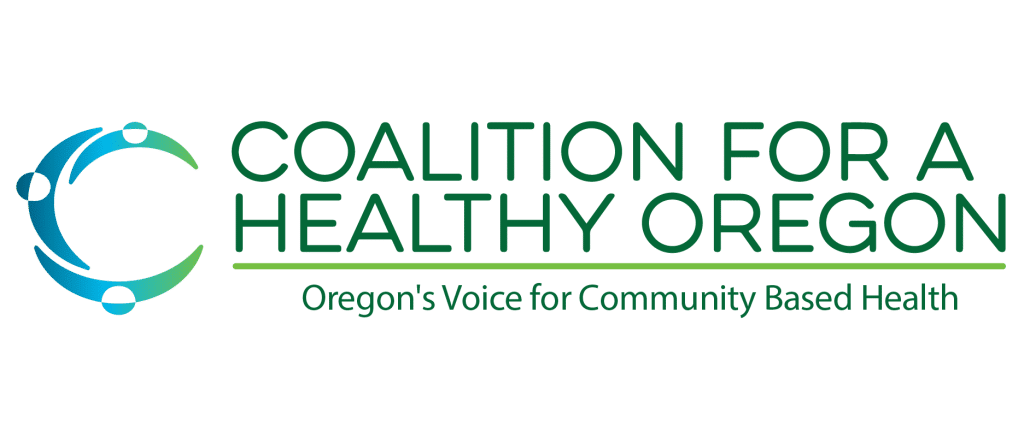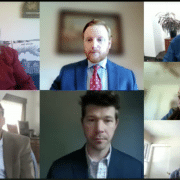Trillium Community Health Plan investments to address housing and food security concerns for OHP Members
Affordable housing advocates have been working with legislators for years to craft state policies to meaningfully address housing affordability and access to affordable housing. Without attempting to grade past performance in this area, it is safe to say there is still work to be done in this policy area.
In this fourth installment in our COHO Health Equity series, we spotlight COHO member Trillium Community Health Plan investments to address housing and food security concerns for Oregon Health Plan (OHP) Members that they serve. Trillium Community Health Plan serves the Lane County and Springfield areas, which holds Eugene, a city ranked in the list of Top 10 cities with the biggest housing crunch, but many rural communities Trillium serves are also experiencing the same problem.
Lack of housing availability tends to be thought of as the problem of large metropolitan cities, but the reality is that average rent costs exceed average/median income levels throughout the state, and the inequality is often most pronounced in Oregon rural communities. People also tend to think of COVID-19 in terms of its infection rate, hospital capacity, and availability of personal protective equipment, but it exacerbated many social determinants of health in significant ways.
Massive layoffs combined with the Employment Department’s failure to provide unemployment relief in a timely manner have resulted in loss of income for hundreds of thousands of Oregonians, both widening the disparity between income coming in and rent going out, and amplifying the prevalence of food insecurity for low income families and the working poor.
We know that the COVID-19 pandemic has had disproportionate impacts on African American communities, Asian and Pacific Islander communities, Native American communities, and Latino, Latina, and Latinx communities. These are communities that already face increased barriers to basic tenets of livelihood and may not have access to some of the resources provided through this pandemic, like the Federal stimulus check of $1,200.
Trillium has long been dedicated to breaking down barriers that cause health inequities by focusing programmatic investments on the social determinants of health, like housing and food security. Because of their experience with addressing social determinants of health, during the COVID-19 pandemic, Trillium was able to quickly identify areas of need in their community and take action to address those needs.
Food Security:
In response to food security needs, Trillium donated nearly $2,000 worth of Walmart gift cards to a nonprofit organization called Centro Latino that offers a variety of services to families ranging from crisis intervention to job search assistance, and include connecting members with rent assistance. David Saez, Executive Director of Centro Latino said, “Thanks to this donation, we will be able to help children and families who are struggling to get their basic needs met during this difficult time.” 10 other organizations that work with unhoused youth and many others also received a large donation of Wal-Mart gift cards to ensure Oregonians have access to basic necessities.
What about those that do not have access to a Walmart? Trillium recognized that many of their more remote OHP members living in rural areas may not be able to utilize these gift cards. Instead, they distributed about $5,000 worth of Amazon gift cards between six rural, community-based organizations in Oakridge, Cottage Grove, Florence, Reedsport, McKenzie Bridge, and Harrisburg that help to address the needs of those living in rural poverty. Now, Oregonians with access to these gift cards will have the ability to order cleaning supplies, safety gear like masks, and many other necessities while remaining safe in their homes.
Housing Concerns:
To address housing concerns, Trillium donated $5,000 to Safe Place Family Justice Center, a nonprofit in Clackamas County, Oregon that focuses on providing housing and housing supports for women and families. Because instances of domestic violence are increasing across the nation during COVID-19, and many are in unsafe housing, Trillium also donated $5,000 each to The Relief Nursery & Womenspace, two organizations that aid people in domestic violence situations.
Trillium knows that health is not just seeing your doctor when you are feeling under the weather. The food you eat, the air you breathe, your access to stable housing and food, access to transportation, and whether or not you face discrimination (among many other things) are all factors that significantly contribute to health. By considering these different areas as health care issues, and investing in them, we can increase positive health outcomes for Oregonians and spend less money on health care.
COHO CCOs have strong, aligned policy priorities that seek to decrease barriers and discrimination in health care that help guide our programmatic investments. While our CCOs put policy priorities like breaking down language barriers and increasing housing security into place on the ground, our government affairs team is working hard to pass even more legislation to address health inequities. Our priorities, like promoting social determinant of health spending and instituting protection of those investments, increasing value-based payments to providers, fighting OHP provider reimbursement cuts, and many more, are all part of COHO’s plan to make Oregon’s public health care system a model that people across the nation will look to for guidance.
Join us in ensuring Oregonians have the access to the equitable health care that they deserve.
Thank you Trillium, for leading the way in dismantling health equity barriers in our state.



